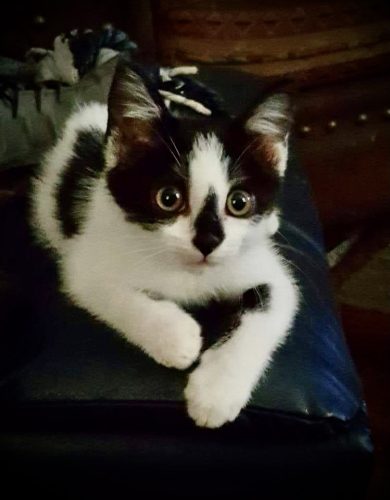Big cats roam the jungle and know just what to watch out for, but their smaller domesticated cousins need our help in navigating the indoor jungle and the garden. It’s up to us to lend them a helping hand to keep them safe and healthy. Certain houseplants can pose dangers to cats; some can even be fatal, so it’s a matter of life and death that all cat parents know which plants are safe and which ones not to keep around.
Plants to Avoid

Let’s delve into the most toxic first, so you know which ones definitely should not be anywhere in your house.
- Peace lilies are a big no-no. As Easter approaches, more folks are inclined to have them around. But please skip it for kitty’s sake. Enjoy the lilies outside. They contain calcium oxalates that are highly toxic to cats. If your cat consumes any of the flowers or leaves, it can end up with a host of symptoms. These include vomiting, an irritated mouth and GI tract, excessive drool, and difficulty swallowing or breathing in the most severe cases.
Other bulb plants that are also a must for kitties to avoid are Hyacinth, Daffodil, Amaryllis.
General signs that your cat may have ingested some kind of toxic natural material can be loss of appetite, disorientation, dilated pupils, excessive licking or scratching, heart palpitations, an increase or decrease in drinking or eating, and diarrhea or urinating more than usual.
The following plants also pose problems for cats and should be avoided at all costs:
- Aloe vera
- Monstera deliciosa
- Pothos
- Onions
- Tomatoes
- Azalea
- Jade plants
- Snake plants
- Sago Palms
- English ivy
- Eucalyptus
- Milkweed
- Oleander
- Poinsettia
- Cyclamen
- Mistletoe
- Oleander
- Rhododendron
- Croton (Joseph’s Coat)
- Caladium (Elephant Ear)
- Dieffenbachia (Dumb Cane)
- Monstera (Swiss Cheese Plant)
- Ficus (rubber plants, weeping, and variegated fig plants)
- Christmas Cherry
- Holly Berries
- Philodendron
For a comprehensive list of all dangerous plants, flowers, and vegetation, check this Humane Society resource: Plants Potentially Poisonous to Pets.
Green Light Feline Greens

The following plants are safe for kitties. They are either safe to be consumed or are plants that cats aren’t attracted to or have a strong aversion to. Remember, there’s one plant that’s a favorite of cats everywhere: catnip! You can always treat your kitty to some catnip. It satisfies their urge to chew on a plant and will get them relaxed or a bit zoomy and playful. Here are some other plants that you can safely have in your home:
- Spider plant
- Olive trees
- Echeveria and Haworthia succulents
- Zamioculca
- Ferns
- Calathea
- Tillandsia air plants
- Grasses
- Plants with big leaves can be a lower risk (cats are less tempted to chew on them)
- Staghorn ferns (can be hung high out of reach)
- Peperomia (cats are not a fan of the taste)
- Maranta
- Kentia palms (some cats like to eat the leaves)
- Cacti (although their spines can undoubtedly hurt a kitty who gets too close)
- Grasses
- Lemongrass
Having a feline friend in your home means that you’re responsible for their health and well-being, including keeping them as safe as possible from potential hazards. Houseplants can add personality and color to your home, but it’s essential to make sure they don’t also add a risk to your cat. Knowing which plants are deadly and which ones are safe is part of being a pet owner.
If you live in NW Wisconsin, Purple Cat Mobile Vet Clinic is here to help you keep your cat healthy and happy. We’re a high-quality, high-volume, low-cost spay/neuter clinic. We see cats exclusively. Find information for scheduling on our www.purplecatvet.com website. You can also look on our Facebook page for more helpful information on all things feline!
